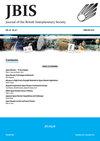A Data Collection Programme for Improving Healthcare in UK Human Spaceflight Ventures
Q4 Engineering
Jbis-Journal of the British Interplanetary Society
Pub Date : 2023-08-07
DOI:10.59332/jbis-076-06-0213
引用次数: 0
Abstract
Over the next decade the number of humans venturing beyond Earth is projected to rapidly increase in both quantity and diversity.Humans will regularly fly to the International Space Station until it is decommissioned by 2031, will return to the Moon by 2025 via the Artemis programme, and will fly to space via commercial ventures. Spaceflight presents a hazardous environment for human health. To understand spaceflight-associated health risks further and to increase safety via advanced healthcare approaches, including personalised medicine, more data must be collected. Importantly, this data must be derived from a diverse cohort of participants and a range of mission formats. We propose that the UK should start to consider all citizens venturing into space as potential participants from which health and biological data could be consensually collected. Importantly, we believe that this routine data collection programme should adopt a similar strategy to the UK National Health Service and the UK Biobank, by including "omics" data for scientific and healthcare purposes. We consider how such a world-leading programme, kick-started via a pilot study, might be realised through appropriate policy design, including which measures to collect, when to collect them, and unique ethical considerations pertaining to the spacefaring population. Keywords: Omics, Astronaut, Ethics, Commercial Spaceflight, Biobank改善联合王国载人航天事业保健的数据收集方案
在接下来的十年里,在地球之外冒险的人类数量预计将在数量和多样性上迅速增加。人类将定期飞往国际空间站,直到它在2031年退役,到2025年将通过阿尔忒弥斯计划重返月球,并将通过商业企业飞往太空。航天为人类健康提供了一个危险的环境。为了进一步了解与航天飞行有关的健康风险,并通过包括个性化医疗在内的先进保健方法提高安全性,必须收集更多数据。重要的是,这些数据必须来自不同的参与者群体和一系列任务格式。我们建议联合王国开始考虑所有进入太空的公民作为潜在的参与者,从中收集健康和生物数据。重要的是,我们认为这种常规数据收集计划应该采用与英国国民健康服务和英国生物银行类似的策略,包括用于科学和医疗保健目的的“组学”数据。我们考虑如何通过适当的政策设计来实现这样一个通过试点研究启动的世界领先的计划,包括收集哪些措施,何时收集措施,以及与航天人口有关的独特伦理考虑。关键词:组学,宇航员,伦理学,商业航天,生物库
本文章由计算机程序翻译,如有差异,请以英文原文为准。
求助全文
约1分钟内获得全文
求助全文
来源期刊

Jbis-Journal of the British Interplanetary Society
Earth and Planetary Sciences-Space and Planetary Science
CiteScore
0.70
自引率
0.00%
发文量
0
期刊介绍:
The Journal of the British Interplanetary Society (JBIS) is a technical scientific journal, first published in 1934. JBIS is concerned with space science and space technology. The journal is edited and published monthly in the United Kingdom by the British Interplanetary Society.
Although the journal maintains high standards of rigorous peer review, the same with other journals in astronautics, it stands out as a journal willing to allow measured speculation on topics deemed to be at the frontiers of our knowledge in science. The boldness of journal in this respect, marks it out as containing often speculative but visionary papers on the subject of astronautics.
 求助内容:
求助内容: 应助结果提醒方式:
应助结果提醒方式:


